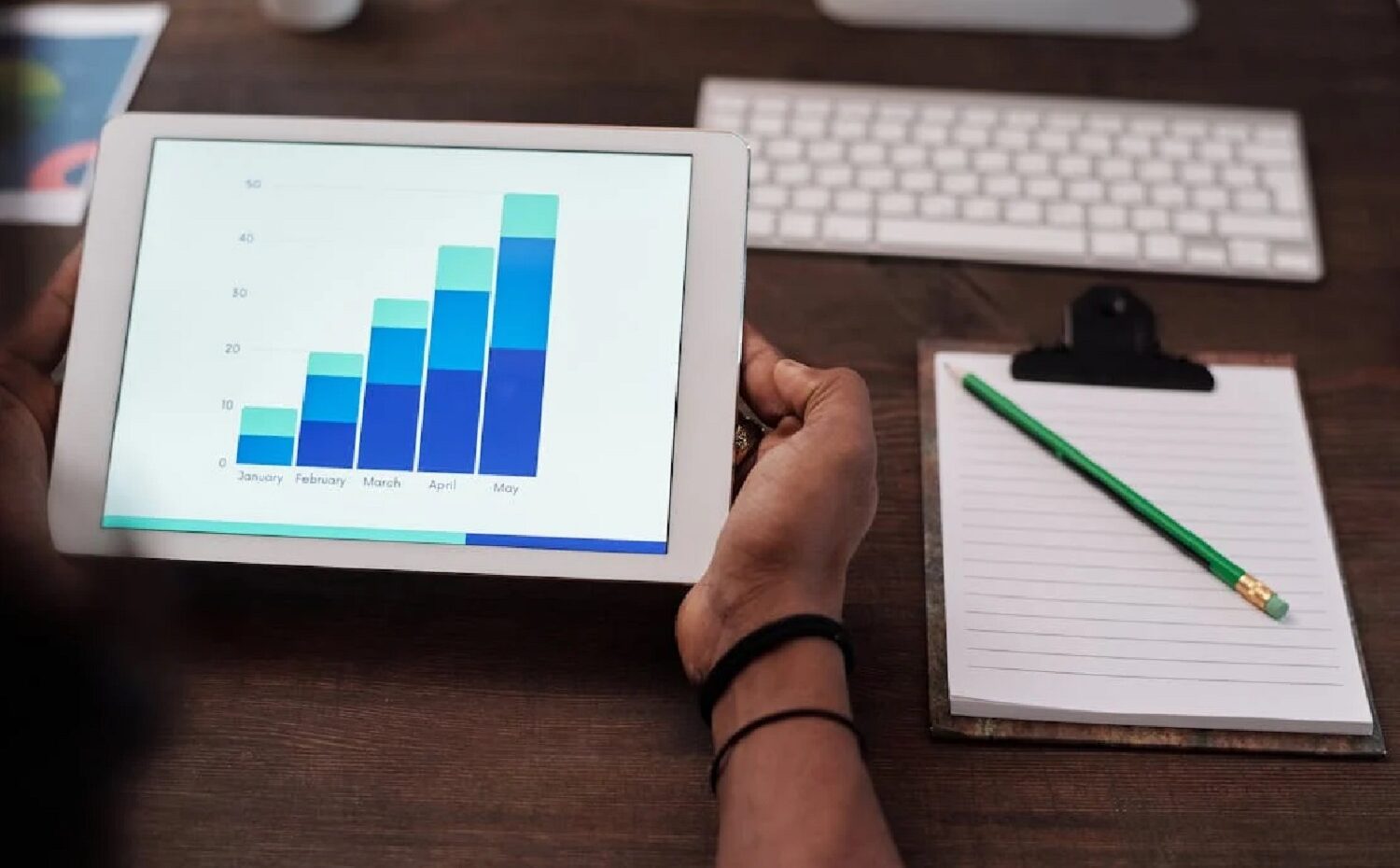On-page SEO versus off-page SEO: Boosting site rankings
Boosting your website’s visibility is an exhilarating journey that all comes down to mastering both on-page and off-page SEO. On-page SEO is where you shine by creating high-quality content, using relevant keywords, and organising your meta tags like a pro.
This is all about actions outside your website that skyrocketed its credibility and reputation. We’re talking about scoring those coveted backlinks, being a social media superstar, and getting noticed online. Strong off-page strategies can catapult your site’s trustworthiness, making it irresistible to search engines.
On-page and off-page SEO are the dynamic duo of an unbeatable SEO plan. On-page techniques ensure your content is ultra-relevant and easy to find, while off-page efforts crank up your site’s authority and reliability. Mastering both can supercharge your search engine rankings and flood your site with organic traffic.
What is on-page SEO?

Photo by: Scott Graham from pexels.com
Commence with developing effective title tags. These should include pertinent keywords and accurately describe your content. Optimise your images and other media. Employ descriptive filenames and alt text that incorporate keywords. Ensure images are compressed to enhance page loading speed.
Establish internal links within your website. Connect related pages to formulate a site structure that search engines can efficiently crawl. This also assists users in navigating and discovering related content. Wisely structure your URLs. Short, descriptive URLs incorporating keywords are easier for search engines and users to comprehend. Avoid numbers and special characters.
What are the key elements of on-page SEO
Content quality and relevance
You want your audience hooked and search engines to believe you’re the real deal. So, dive into producing well-researched articles that answer what people are asking. Make sure your content is spot-on for the keywords you’re targeting. Each page should zero in on one specific topic or phrase, making it easy for both people and search engines to get it.
HTML tags and structured data
HTML tags are a big deal when it comes to how search engines see your site. Use title tags to give a clear idea about what’s on each page. Keep those meta descriptions short, punchy, and packed with your main keywords. Don’t forget about structured data, like schema markup; it helps search engines understand your stuff better and might even get you that featured snippet spot.
Website architecture and navigation
A well-organised site enhances user experience and aids search engines in crawling your site. Ensure your website’s architecture is logical, with a clear hierarchy. Implement an intuitive navigation menu so users and search engines can easily find important content. A good internal linking structure distributes page authority and helps with crawling and indexing.
What is off-page SEO?

Photo by: Kindel Media from pexels.com
Balancing both on-page and off-page SEO strategies is crucial for ranking your site’s visibility and user experience. On-page SEO optimises your content and website elements, while off-page SEO catapults your reach through backlinks, social signals, and local SEO. Prioritising ethical standards and best practices in both areas ensures your website stays relevant and accessible. By tackling challenges like duplicate content and poor-quality backlinks, you can dodge penalties and boost your search engine rankings. Remember, quality and relevance are the secret elements to maximising the effectiveness of your SEO efforts.
What are the key elements of off-page SEO
In off-page SEO, focusing on aspects beyond your website can significantly enhance your rankings and authority.
importance of backlinks
Backlinks remain crucial for off-page SEO. They act as external endorsements of your website’s quality and relevance. Having a higher number of quality backlinks can improve your search rankings. For instance, Google considers these links as votes of confidence. Engaging in guest blogging and broken link building can help you acquire fruitful backlinks. Aim for quality over quantity to make a meaningful impact.
Social signals and engagement
Social media might not directly boost your search engine rankings, but it’s super important for off-page SEO. When you get active on platforms like Facebook and Twitter, you can increase your brand visibility. Shares and likes are social signals that show how valuable your content is. While these don’t directly impact rankings, they can drive traffic to your site, which can lead to potential backlinks and better recognition.
Local SEO and online directories
Local SEO enhances your visibility in local searches. By listing your business in online directories like Google My Business, you can improve your local search rankings. These directories often allow customer reviews, which can build your site’s credibility. Engaging in local SEO can also include getting featured in local publications and blogs. This strategy improves your site’s relevance for local audiences and boosts your authority across local searches.
Comparing impacts: On-page versus off-page SEO
Understanding the distinct impacts of on-page and off-page SEO is crucial. Each type of SEO plays a unique role in influencing your website’s search engine rankings.
Influence on search engine rankings
On-page SEO is super important for getting your site to rank higher on search engines. It’s all about tweaking stuff on your website, like picking the right keywords, beefing up your content, and making sure your URL structure is neat. Doing this makes your site more appealing to search engines and users.
Think of quality backlinks from credible sites as endorsements—search engines see these and think your content is legit. Also, being active on social media and scoring positive customer reviews can seriously bump up your search ranking.
Control over SEO factors
On-page SEO is entirely within your control. You can optimise your site’s title tags, meta descriptions, and content to align with search engine best practices. Ensuring fast page load times and mobile-friendliness are also key components you can manage directly.
Off-page SEO involves factors that are largely outside your control. While you can influence off-page SEO by creating shareable content and reaching out for backlinks, your ultimate success depends on external websites. Social signals and online reviews from customers further influence your site’s reputation and visibility.
Strategies to optimise on-page SEO

Photo by: Miguel Á. Padriñán from pexels.com
Optimising your on-page SEO is crucial for improving your website’s search engine rankings. It involves refining various elements that are under your control.
Keyword optimisation techniques
Insert target keywords strategically. Include them in your page titles, meta descriptions, and headers. Keep your use of keywords natural to avoid keyword stuffing. Use variations of your main keywords to cover a wider range of search terms. Ensure your content answers the search intent of users, making it relevant and useful.
Enhancing user experience (UX)
Make your site super easy to navigate. Use clear headings and subheadings to keep things simple. Speed up page loads by optimising images and using browser caching. Aim for a clean, attractive design that’s gentle on the eyes. Offer great, engaging content. The simpler your site is to use, the higher it’ll rank in search engine results.
Mobile optimisation
Make sure your site works great on mobile. Use responsive design so it looks good on any screen size. Test it out on different devices to ensure everything functions smoothly. Speed things up on mobile by cutting down on code and compressing images. Create an intuitive and easy-to-follow mobile site structure. A mobile-friendly site boosts user experience and gets love from search engines.
Strategies to enhance off-page SEO
Building quality backlinks
Focus on earning high-quality backlinks to boost your site’s authority. Quality over quantity matters here. Links from reputable websites signal trust to search engines. Guest posts, collaborations, and influencer marketing are effective methods. Always aim for natural and relevant backlinks that enhance your content’s context and relevance..
Leveraging social media
Social media is a great way to amp up your off-page SEO. Post your stuff on Facebook, Twitter, and LinkedIn to grab more attention and start awesome discussions. Engage with your followers through comments and shares to create a tight-knit community. Make your posts pop with cool images, fun videos, and interesting infographics. Keep tabs on what folks are saying about you and join in on the conversation. Having a solid social media presence can score more backlinks and boost your brand’s credibility.
Encouraging user reviews and ratings
User reviews and ratings are super important for off-page SEO. Good reviews build trust and can give your search engine rankings a nice boost. Get your happy customers to leave reviews on sites like Google My Business, Yelp, and any other review spots that fit your business. If you get negative reviews, respond professionally to show you care about customer feedback. Keeping up good ratings and reviews can improve your website’s reputation and local search rankings.
You can also check out SEO versus SEM: Mastering digital marketing strategies, and understanding the nuances between SEO and SEM is crucial for boosting your online presence. While both strategies aim to elevate your site’s visibility, they take different routes to achieve this goal. On the other hand, SEM involves a blend of organic SEO and paid advertising methods, ensuring your brand grabs attention through both natural rankings and strategic ad placements. Knowing which strategy, or combination thereof, suits your brand can significantly impact your digital footprint and overall success.


